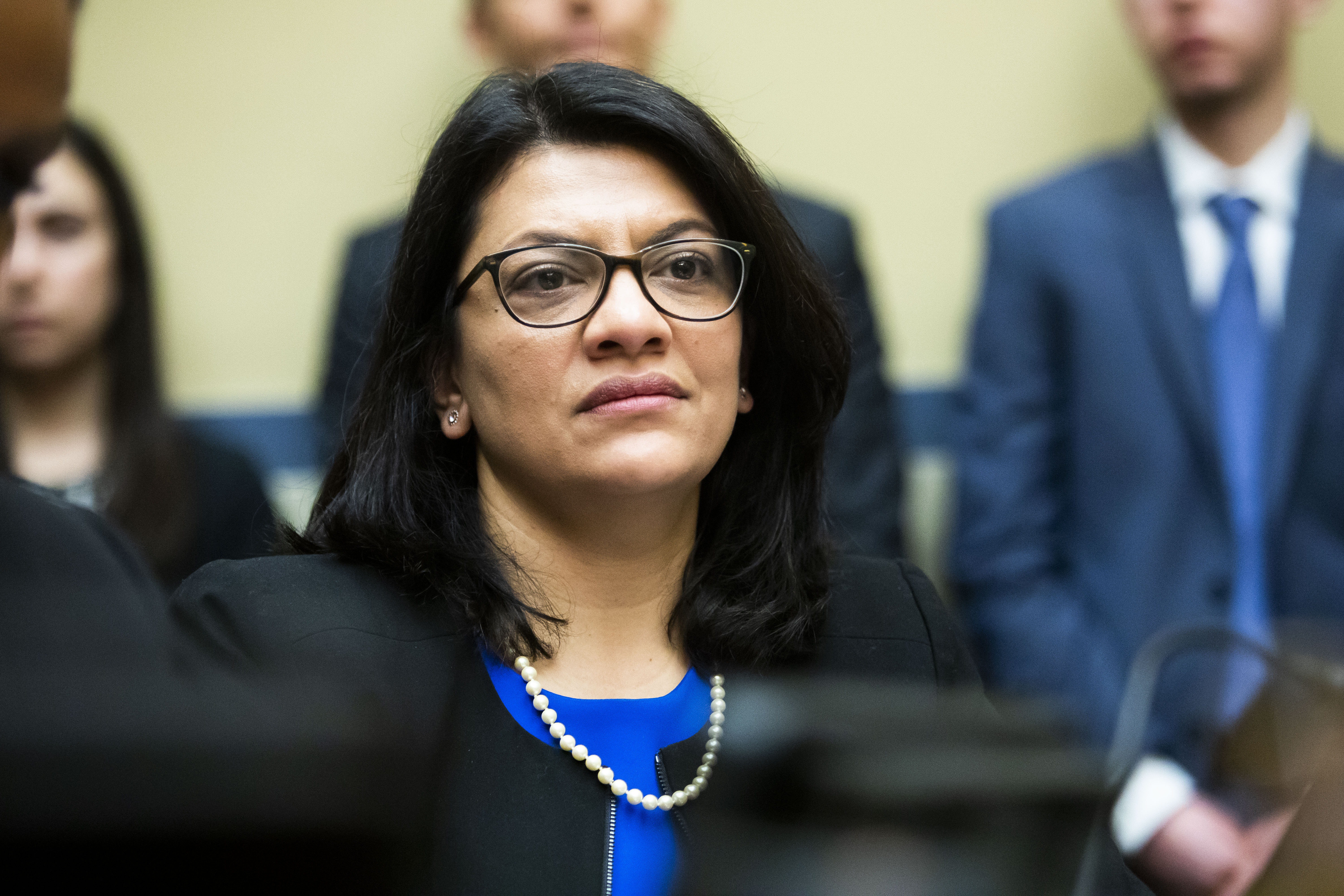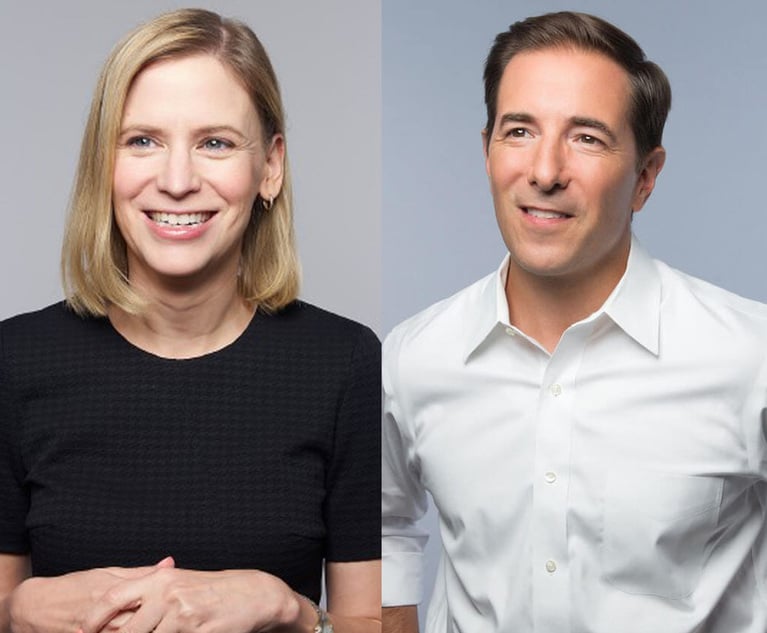Power, Privilege, and Fragility: Learning to Talk About Race
Justice Sonia Sotomayor had it right when she encouraged us to continue to speak “openly and candidly on the subject of race."
April 17, 2019 at 03:36 PM
6 minute read
 Rep. Rashida Tlaib, D-Michigan
Rep. Rashida Tlaib, D-Michigan
Justice Sonia Sotomayor once wrote that “[t]he way to stop discrimination on the basis of race is to speak openly and candidly on the subject of race.” During the recent Michael Cohen hearing, the “racist” label flew back and forth during a heated interchange between Reps. Rashida Tlaib and Mark Meadows. As our own profession struggles with a diversity and inclusion crisis, there is much to learn from this interchange.
In sum, Cohen had testified that President Donald Trump is a racist. In an attempt to refute that allegation, Meadows produced Lynne Patton, a black woman and an official at the Federal Department of Housing and Urban Development with a personal connection to the president and his family. While Patton stood silently beside him, Meadows indicated that she would not work for Trump if he was a racist. In response, Tlaib expressed frustration:
“Just because someone has a person of color, a black person working for them, does not mean they aren't racist. And it is insensitive … the fact that someone would actually use a prop, a black woman, in this chamber, in this committee, is alone, racist in itself.”
Meadows' reaction was swift and emotional. He repeatedly interrupted Tlaib as she continued her remarks, seeking to have her words stricken. Chairman Elijah Cummings intervened to attempt to mediate the dispute. Tlaib reread her words, and clarified that she was not calling Meadows a racist, but that the reference to Patton was a “racist act.”
Meadows, demonstrating increasing emotion, responded:
“Mr. Chairman, there's nothing more personal to me, than my relationship- my nieces and nephews are people of color. Not many people know that. You know that, Mr. Chairman. And to indicate … that [Patton] is coming in here to be a prop; it's racist to suggest that I asked her to come in here for that reason. … Mr. Chairman, you and I have a personal relationship that's not based on color!”
Cummings deftly handled the matter in the moment, affirming his personal relationship with Meadows and telling him that he “could see and feel [his] pain.” That necessity of assuaging Meadow's pain, over the mere suggestion that he had done something that was racist, reveals why we struggle so much when talking about race.
Robin DiAngelo, author of the book “White Fragility: Why It's So Hard for White People to Talk About Racism,” has coined the term “white fragility” to address this phenomenon:
“White Fragility is a state in which even a minimum amount of racial stress becomes intolerable, triggering a range of defensive moves. These moves include the outward display of emotions such as anger, fear, and guilt, and behaviors such as argumentation, silence, and leaving the stress-inducing situation. These behaviors, in turn, function to reinstate white racial equilibrium.”
Meadows' references to Patton to refute claims of the president's racism, and his use of his family and relationship with Cummings to defend himself, are classic examples of this fragility. Rather than engage in a meaningful conversation about why Meadows' reference to Patton was ineffective and improper, Cummings and Tlaib, both people of color, were forced to find ways to address Meadow's “pain.”
Let's break this down:
Trump employs Lynne Patton. Patton is a black woman. Therefore, Trump cannot be a racist.
This singular example does not refute the initial proposition, for reasons that should be understandable to any lawyer. For example:
It snows in winter. It snowed in May. Therefore, May must fall in winter.
Joe is married to Jane. Jane is a woman. Therefore, Joe cannot be sexist.
It was really cold in February. Therefore, global warming must be a hoax.
Your child likes broccoli. Broccoli is a vegetable. Therefore, your child loves all vegetables.
When compared, the fact that Meadows has nephews and nieces of color, or may even be best friends with Cummings, does not refute the fact that what he did may have been insensitive and racist. The public interchange between Meadows and Tlaib represented a lost opportunity to engage meaningfully on issues of race. What we know is that the conversation was taken to a more comfortable, private conversation, following which Tlaib and Meadows publicly “hugged it out” to show their reconciliation. All of this to address Meadow's umbrage at the mere suggestion that he had done something racist.
What are the takeaways for us, as lawyers? Does your own inability to wrestle with race cause others to avoid raising the matter with you? If someone did approach you about an insensitive remark or an exclusionary act, would you be ready to listen, or would you exhibit defensiveness? Has that created a culture of silence around these issues within your firm or organization?
Think about our own many diversity and inclusion initiatives. If your firm's website features a picture of a group of diverse lawyers working together to highlight your inclusiveness, is that picture truly representative of your overall culture? Who leads your diversity and inclusion committee? If it is a person of color, did you ask that person because he or she had expressed an interest and aptitude in advancing diversity and inclusion, or simply because of your own assumptions? If a diverse attorney has been tasked with improving your firm's culture, does that role translate into greater leadership and financial reward? Or does it represent a tax, an additional responsibility over and above the universal benchmarks that all attorneys must reach in order to grow within your organization? To those who complain of diversity and inclusion “fatigue”: do you really feel that “fatigue” because you do not like being continuously confronted on an issue that makes you uncomfortable?
As with most interactions involving race, this is an area fraught with challenges. But Sotomayor had it right when she encouraged us to continue to speak “openly and candidly on the subject of race.” Meadows may have missed the opportunity at the Cohen hearings, but we do not have to repeat his mistake.
This content has been archived. It is available through our partners, LexisNexis® and Bloomberg Law.
To view this content, please continue to their sites.
Not a Lexis Subscriber?
Subscribe Now
Not a Bloomberg Law Subscriber?
Subscribe Now
NOT FOR REPRINT
© 2025 ALM Global, LLC, All Rights Reserved. Request academic re-use from www.copyright.com. All other uses, submit a request to [email protected]. For more information visit Asset & Logo Licensing.
You Might Like
View All



Trending Stories
Who Got The Work
J. Brugh Lower of Gibbons has entered an appearance for industrial equipment supplier Devco Corporation in a pending trademark infringement lawsuit. The suit, accusing the defendant of selling knock-off Graco products, was filed Dec. 18 in New Jersey District Court by Rivkin Radler on behalf of Graco Inc. and Graco Minnesota. The case, assigned to U.S. District Judge Zahid N. Quraishi, is 3:24-cv-11294, Graco Inc. et al v. Devco Corporation.
Who Got The Work
Rebecca Maller-Stein and Kent A. Yalowitz of Arnold & Porter Kaye Scholer have entered their appearances for Hanaco Venture Capital and its executives, Lior Prosor and David Frankel, in a pending securities lawsuit. The action, filed on Dec. 24 in New York Southern District Court by Zell, Aron & Co. on behalf of Goldeneye Advisors, accuses the defendants of negligently and fraudulently managing the plaintiff's $1 million investment. The case, assigned to U.S. District Judge Vernon S. Broderick, is 1:24-cv-09918, Goldeneye Advisors, LLC v. Hanaco Venture Capital, Ltd. et al.
Who Got The Work
Attorneys from A&O Shearman has stepped in as defense counsel for Toronto-Dominion Bank and other defendants in a pending securities class action. The suit, filed Dec. 11 in New York Southern District Court by Bleichmar Fonti & Auld, accuses the defendants of concealing the bank's 'pervasive' deficiencies in regards to its compliance with the Bank Secrecy Act and the quality of its anti-money laundering controls. The case, assigned to U.S. District Judge Arun Subramanian, is 1:24-cv-09445, Gonzalez v. The Toronto-Dominion Bank et al.
Who Got The Work
Crown Castle International, a Pennsylvania company providing shared communications infrastructure, has turned to Luke D. Wolf of Gordon Rees Scully Mansukhani to fend off a pending breach-of-contract lawsuit. The court action, filed Nov. 25 in Michigan Eastern District Court by Hooper Hathaway PC on behalf of The Town Residences LLC, accuses Crown Castle of failing to transfer approximately $30,000 in utility payments from T-Mobile in breach of a roof-top lease and assignment agreement. The case, assigned to U.S. District Judge Susan K. Declercq, is 2:24-cv-13131, The Town Residences LLC v. T-Mobile US, Inc. et al.
Who Got The Work
Wilfred P. Coronato and Daniel M. Schwartz of McCarter & English have stepped in as defense counsel to Electrolux Home Products Inc. in a pending product liability lawsuit. The court action, filed Nov. 26 in New York Eastern District Court by Poulos Lopiccolo PC and Nagel Rice LLP on behalf of David Stern, alleges that the defendant's refrigerators’ drawers and shelving repeatedly break and fall apart within months after purchase. The case, assigned to U.S. District Judge Joan M. Azrack, is 2:24-cv-08204, Stern v. Electrolux Home Products, Inc.
Featured Firms
Law Offices of Gary Martin Hays & Associates, P.C.
(470) 294-1674
Law Offices of Mark E. Salomone
(857) 444-6468
Smith & Hassler
(713) 739-1250










